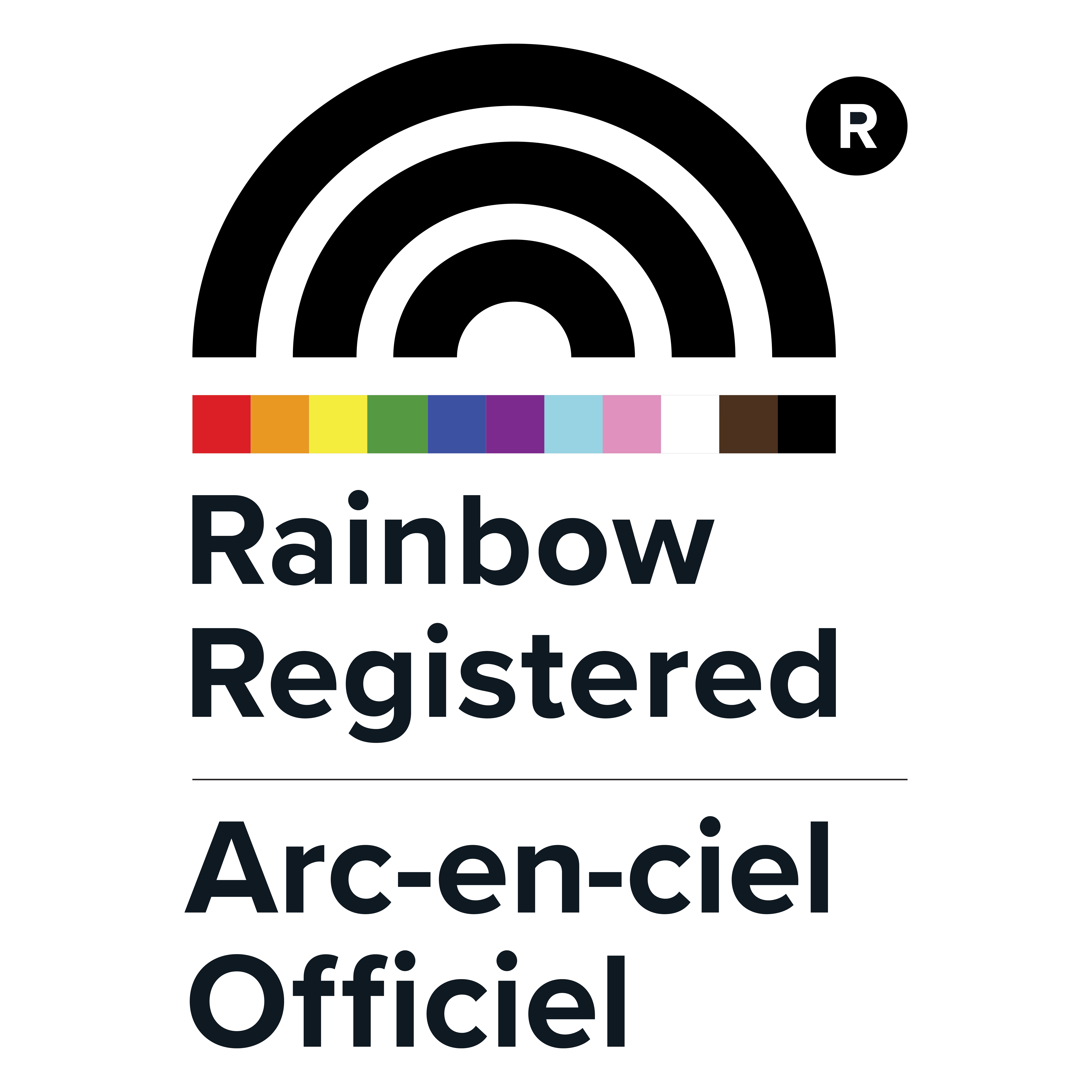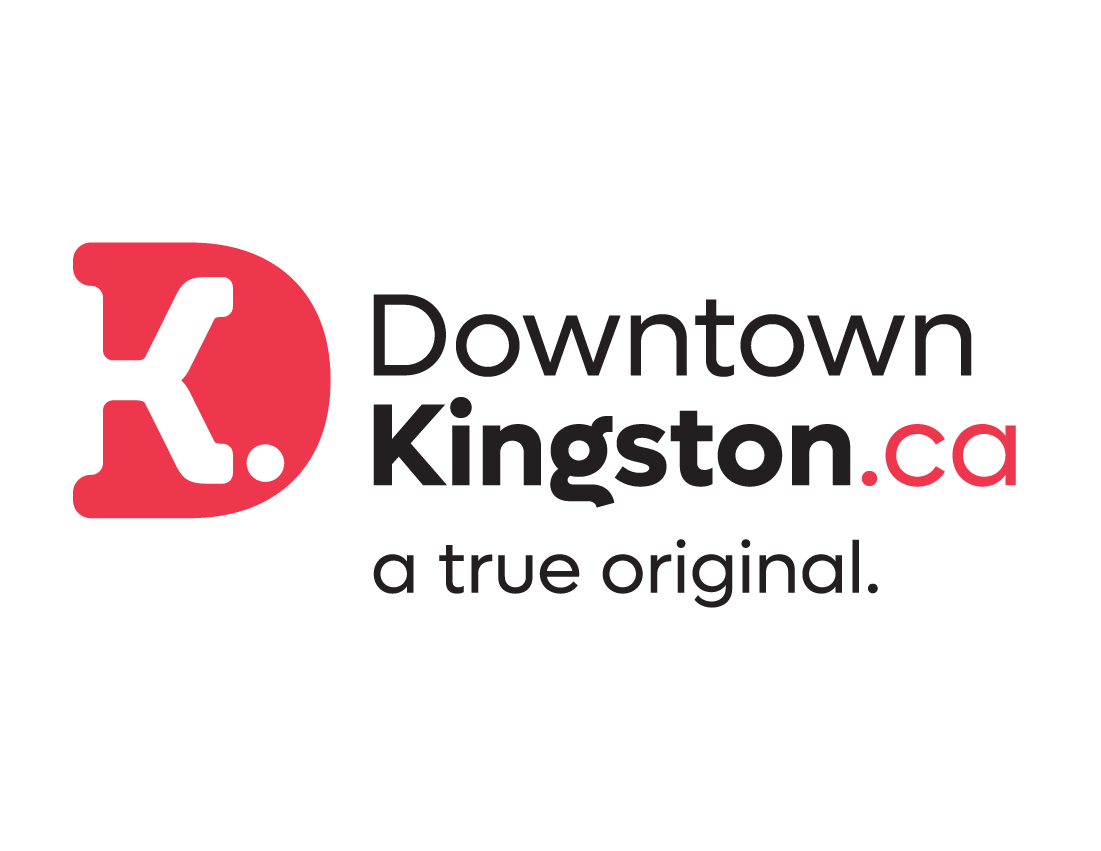Some people might be surprised to know that out of the small selection of athletes invited to represent Canada at the Tokyo 2020 Summer Olympic and Paralympic Games, seven are from Kingston and five of them are water and wind athletes. This wouldn’t come as a shock to Kingstonians though, as we’ve cultivated a legacy of excellence in water sports. After a postponement due to the COVID-19 pandemic, over 10,000 athletes are set to compete at the Games July 23 to August 8, 2021. Abi Tripp (Para-swimming), Alexandra (Ali) ten Hove (Sailing), Jennifer Casson (Rowing), Kristina Walker (Rowing), and Will Crothers (Rowing) are the Kingston athletes that Lake Ontario has helped nurture for the world’s most prominent sports competition.
Jennifer Casson has been competing on the Canadian Senior National Rowing Team since 2017. As she prepares for the Tokyo 2020 Olympic Games, she reflects on how Kingston simply caters itself to water and wind athletes. “Kingston has always sort of hit way above its belt as far as athletes that have come from Kingston. I don’t know if it’s something in the water – I’m inclined to believe that. It’s just such an active, little town and everyone’s always doing something on the water. You’re surrounded by three bodies of water.”
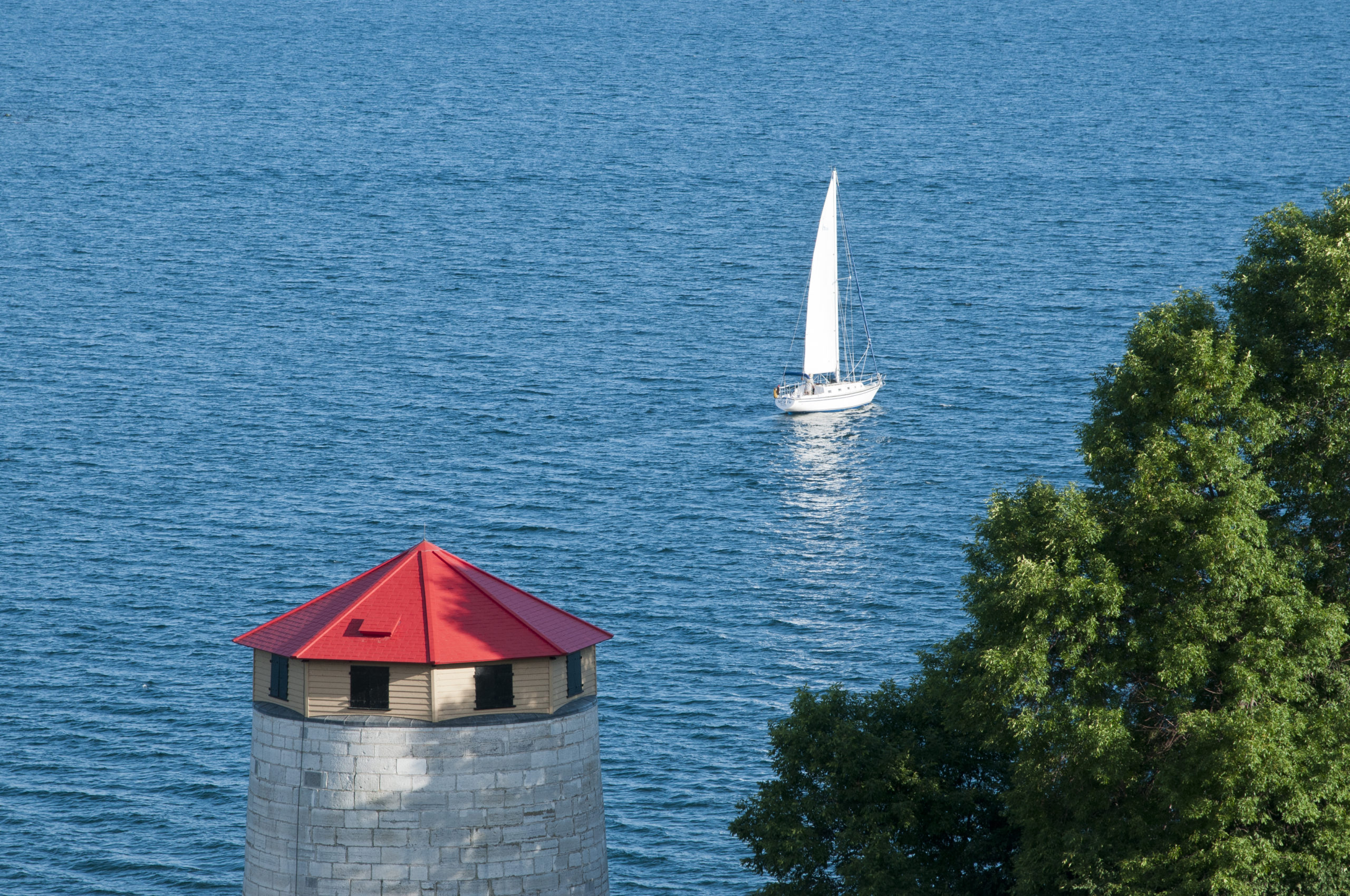
Even in a country like Canada, home to the most lakes in the world, Kingston still stands out as a superior spot for sailing and rowing. We spoke with John Curtis, a 16-year veteran of the Canadian sailing team who represented Canada in sailing at the 2004 Athens Olympic Games in the Tornado class. He has several accolades at the international level and is also the President of Wind Athletes Canada, an organization that provides financial and logistical support for aspiring Olympic sailors.
“Kingston is a great place to sail. There’s a whole bunch of factors and they all sort of come together in Kingston. I have sailed the world, so when I say Kingston is one of my favourite places, I would say it is my favourite place to sail. First of all, we typically have some sailable wind every day. In the summer, we often have relatively strong winds in a fairly reliable pattern.”
In addition to excellent wind conditions, Kingston is famous for its southwesterly thermal breeze. Curtis explains that our water is the right depth and there aren’t many obstacles to obscure training and races. There’s also a “very nice fetch,” which means we have a stretch of open water that cultivates excellent waves, rather than a small, enclosed sailing area. It’s no surprise then, that many of Canada’s greatest wind and water professionals are those who began their athletic journey here.
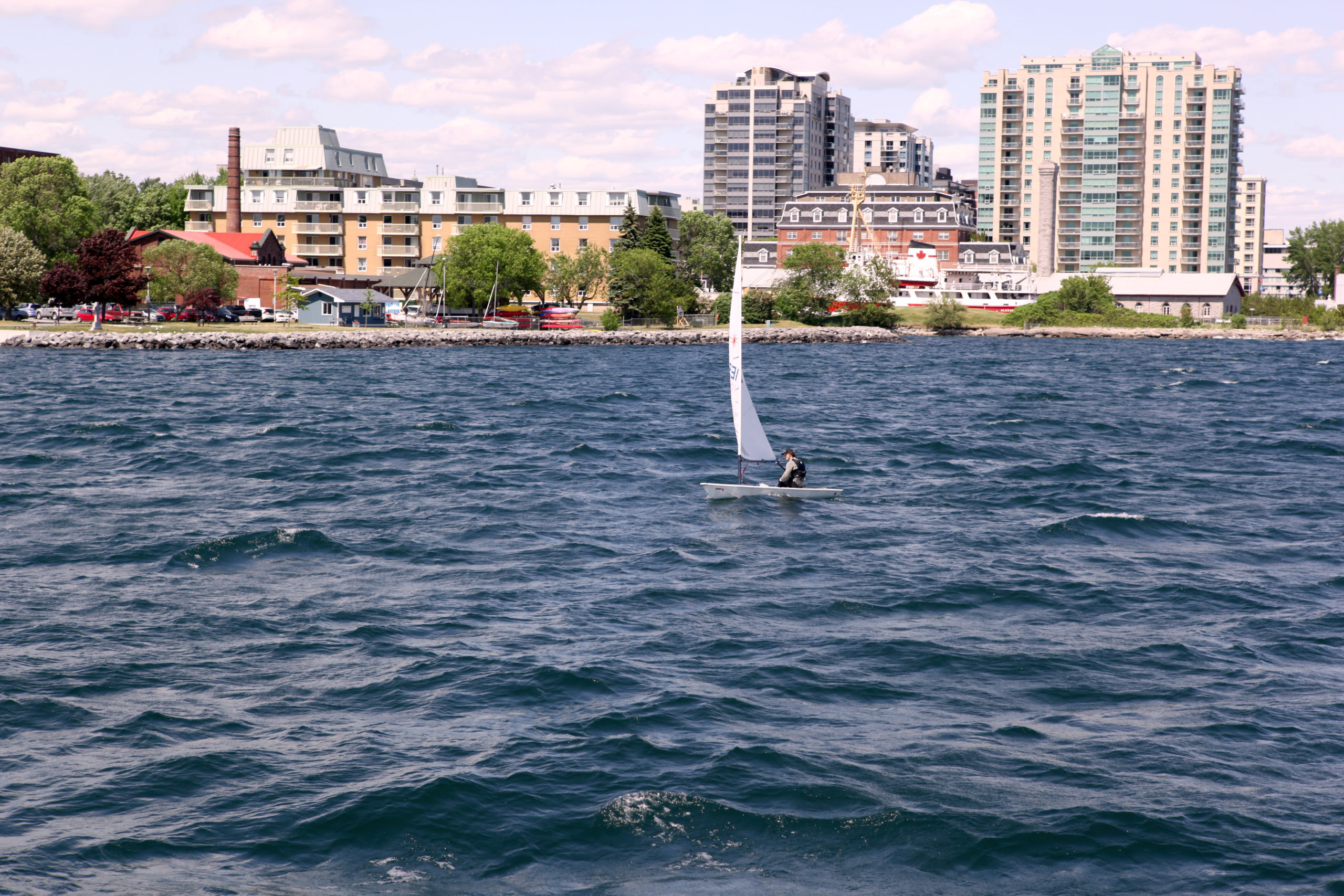
Kingston’s Ali ten Hove is representing Canada in Sailing in the 49er – Skipper Class at the Tokyo 2020 Olympics. She points out that Kingston’s gorgeous lakefront directly connects the community to water. The unique thermally driven winds in the summer months make for strong and consistent conditions, ten Hove’s “ideal sailing playground” that’s fun to race in.
Curtis remarks that there are other places in the world that have water factors that are conducive to sailing, but it’s the small-town atmosphere in Kingston that truly makes a difference for professional athletes. Often, in other popular sailing locations such as San Francisco, athletes must make long commutes even if they live close to the water. Even after rigging your boat, it might take 45 minutes to sail out to an area of water that’s favorable to training and racing. Lake Ontario, on the other hand, is easily accessible from residences and it only takes about three minutes to get from the Kingston harbour to the “field of play.”
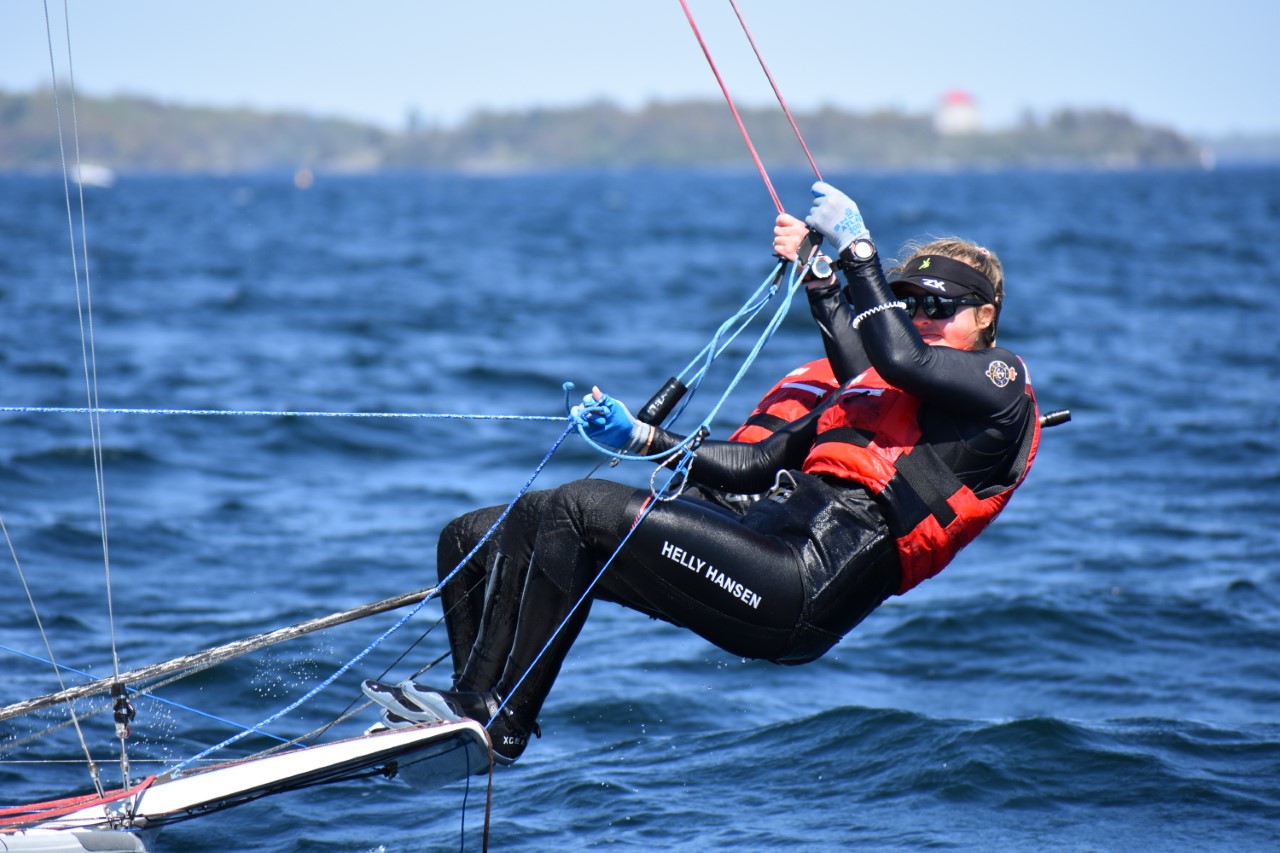
Beyond the environmental conditions and physical location that make Kingston a breeding ground for wind athletes, Kingston also has a rich history of welcoming international sailors to our harbour. The Canadian Olympic-training Regatta, Kingston, (CORK) began in 1969 with an original committee made up of Kingston Yacht Club (KYC) members. And in 1976, we highlighted our superior freshwater sailing conditions on the global stage during the Olympic Games. Due to our Lake Ontario location and reputation for world-class sailing, the Montreal 1976 Olympic sailing events were held in Kingston at the Portsmouth Olympic Harbour. The harbour, which was constructed in 1969, was rejuvenated in 1974 to include three race areas for the Games. The 1976 sailing program was made up of six different sailing disciplines across three race areas. The Portsmouth Olympic Harbour is the only legacy Olympic sailing site in North America.
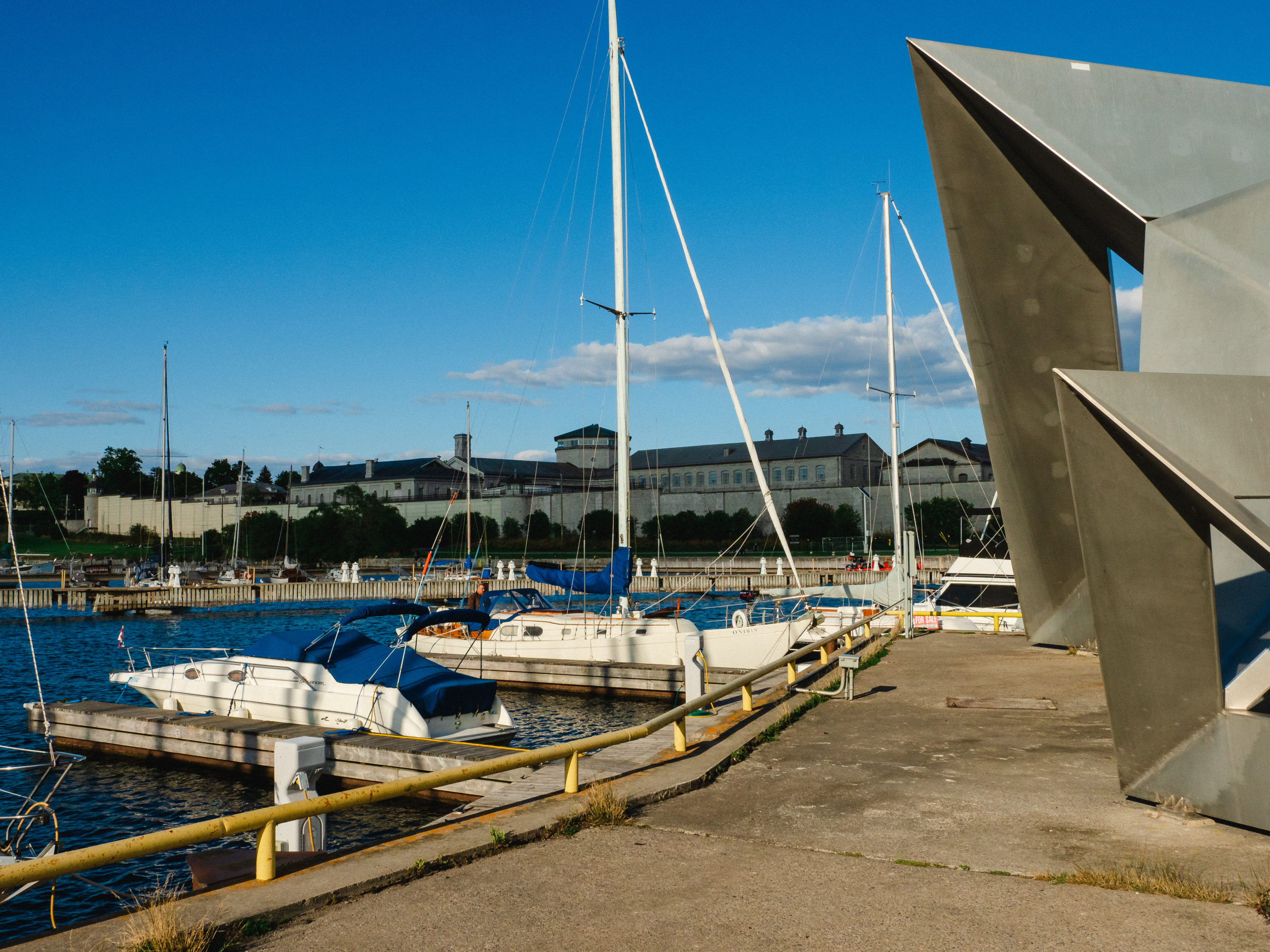 CORK continues to be world-renowned, for its pre-Olympic regattas that take place in August with more than 1,500 competitors and for hosting North American and World Championships. CORK brings young, international talent to Kingston’s shores each year. CORK also works closely with Ontario Sailing and Sail Canada and hosts an annual Fall Regatta at the end of September. In fact, Curtis came to Kingston for the CORK regattas in the early ‘80s and deemed it the “beginning of [his] love affair with Kingston.” Curtis points to Kingston regattas and CORK as crucial to the sport, both locally and internationally.
CORK continues to be world-renowned, for its pre-Olympic regattas that take place in August with more than 1,500 competitors and for hosting North American and World Championships. CORK brings young, international talent to Kingston’s shores each year. CORK also works closely with Ontario Sailing and Sail Canada and hosts an annual Fall Regatta at the end of September. In fact, Curtis came to Kingston for the CORK regattas in the early ‘80s and deemed it the “beginning of [his] love affair with Kingston.” Curtis points to Kingston regattas and CORK as crucial to the sport, both locally and internationally.
“Because Kingston has been a great place to sail for a long time and is close to the water, the world already comes to Kingston, and they sort of park themselves in Kingston every summer. So, there are great training opportunities here. That’s a consistent thing. That’s just been created by the hard work of all the people who have come before us who held big events and Kingston is a great place to come and train. Once a place becomes a great place to train, it’s sort of a self-fulfilling prophecy: it’s a great place because it’s a great place and everybody goes there because it’s a great place. It’s a virtuous circle, that’s what it is.”
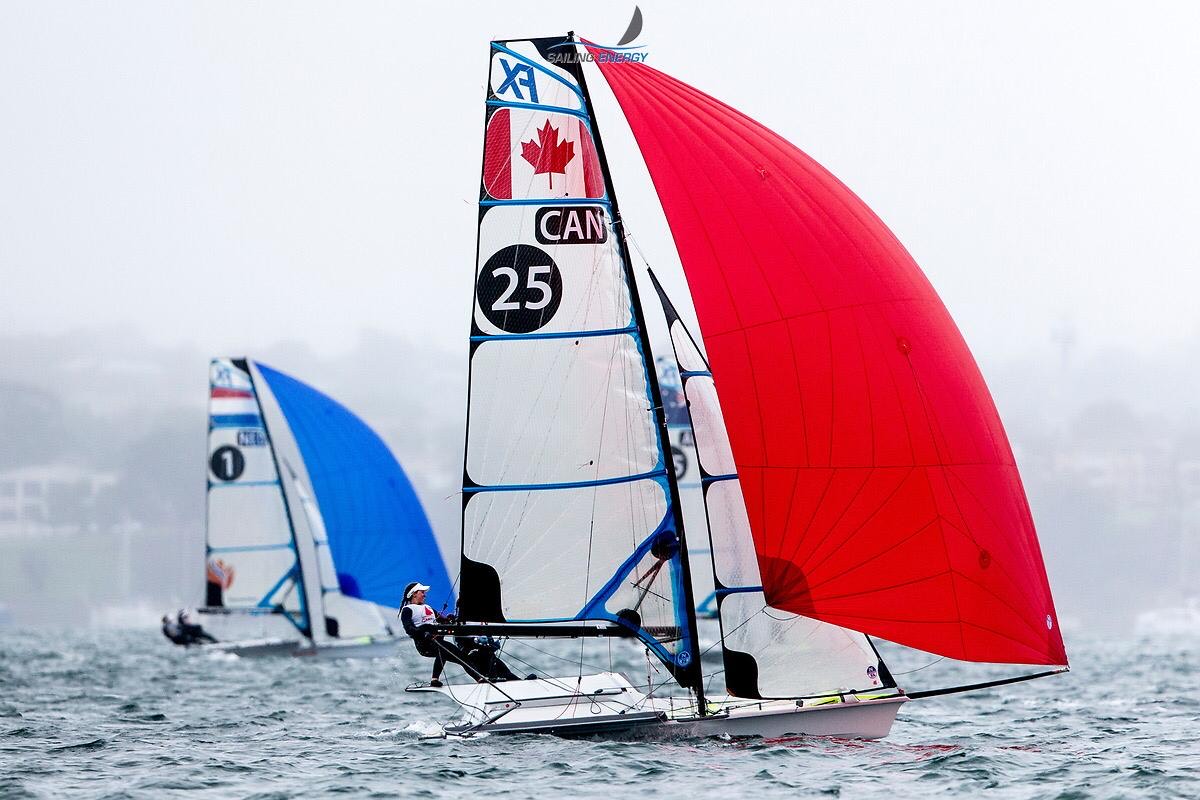
So, while Kingston has had many famous names take up sail at Portsmouth Olympic Harbour and it boasts some of the world’s best sailors and rowers, we owe it all to a tireless local community. Curtis believes that the true value of sport is how it can be a vehicle for building community, and in Kingston, the sailing community is simply made up of good people.
Ten Hove is also a strong believer that Kingston’s community had a significant role in cultivating her skills as a high-performance wind athlete:
“I think a main reason probably why I reached the level that I am at now does have a lot to do with Kingston. It’s no surprise that Kingston produces so many high-calibre athletes within sailing because the sailing community in Kingston has such a history of Olympic excellence and such a legacy.”
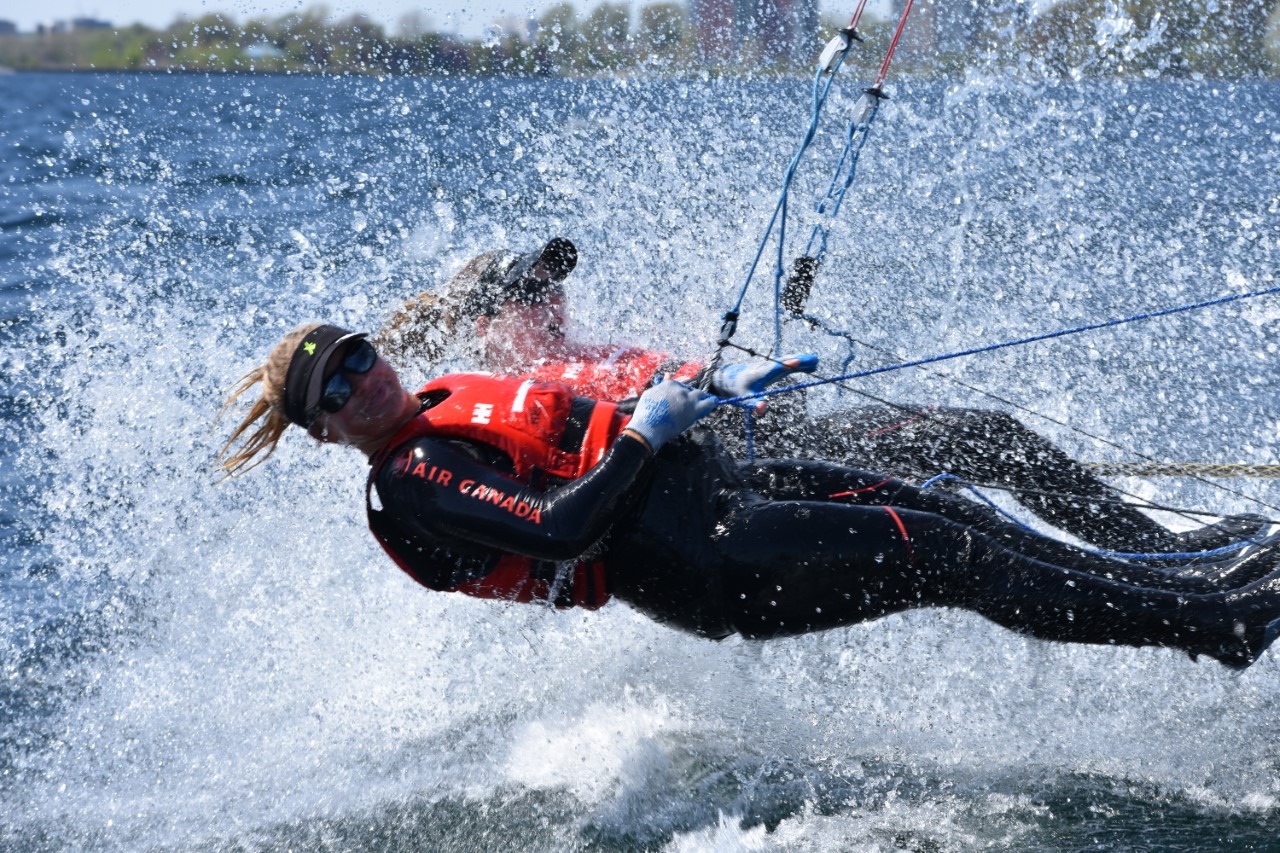
In 2021, on the 45th anniversary of the Montreal 1976 Olympics, Kingston continues to prove itself as the freshwater sailing capital of the world, and Tokyo 2020 will be the fourth Olympics in a row in which a Kingston rower has competed. Due to CORK’s long history of hosting regattas and the wisdom passed down through generations of members at the Kingston Yacht Club and Kingston Rowing Club, we have a vibrant water and wind community that continues to nurture new and established talent.



